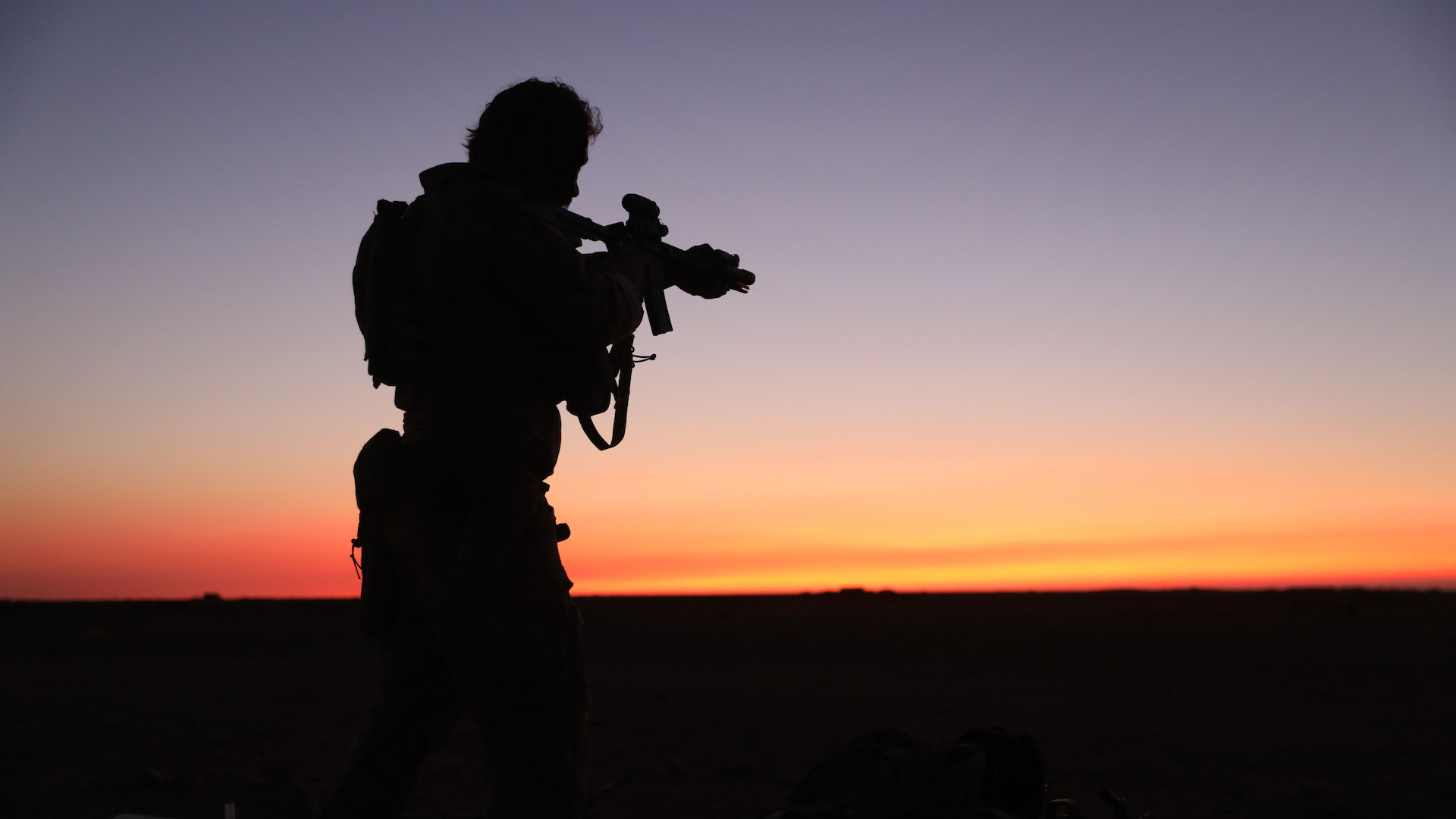

The U.S. military launched a “unilateral strike” in Syria on Monday that killed Khalid ‘Aydd Ahmad al-Jabouri, whom military officials describe as a senior leader with the Islamic State group, according to U.S. Central Command.
Al-Jabouri was allegedly responsible for planning ISIS attacks in Europe and Turkey as well as developing ISIS’ leadership structure in Turkey, a CENTCOM news release says.
No civilians were killed or injured in the strike, according to CENTCOM. U.S. military officials have not publicly released what type of aircraft or ordnance were involved in Monday’s strike.
The White Helmets, an organization of volunteer rescuers in Syria that has often been targeted by Syrian President Bashar al-Assad’s regime, tweeted on Monday that a man was killed by a missile fired from an unidentified drone on Monday near the town of Killi.
“Our teams responded and took the injured person to Bab Al-Hawa Hospital, where he died,” according to the group’s tweet, which was first reported by the BBC.
Subscribe to Task & Purpose Today. Get the latest military news, entertainment, and gear in your inbox daily.
Roughly 900 U.S. troops remain in Syria to fight ISIS, which has become an insurgency in both Syria and Iraq since it lost the last of the territory it once controlled in 2019. Last year, U.S. service members conducted 313 missions in both countries, during which at least 686 suspected ISIS fighters were killed.
Army Gen. Mark Milley, chairman of the Joint Chiefs of Staff, underscored the importance of the U.S. military’s mission in Syria during a recent visit to the country.
“I think that an enduring defeat of ISIS and continuing to support our friends and allies in the region … I think those are important tasks that can be done,” Reuters quoted Milley as saying in Syria last month.
The fight against ISIS in Syria is active and dangerous. Four U.S. service members and a military working dog were injured during a Feb. 16 raid in northeastern Syria that resulted in the death of ISIS senior leader Hamza al-Homsi.
That same night, U.S. troops killed an ISIS assassination cell leader in a separate mission in Syria. On Feb. 18, U.S. troops captured an ISIS official identified as “Batar,” who is accused of trying to build bombs and free ISIS detainees from prisons run by the Syrian Democratic Forces, or SDF.
ISIS has long sought to break its fighters and their families out of detention centers run by the SDF such as the al-Hol detention refugee camp in northeastern Syria, where tens of thousands of people are being held, most of whom are women and children.
U.S. troops and the SDF stopped five suspected ISIS militants from making their way into the camp in September, and on Feb, 10 American troops killed Ibrahim Al Qahtani, an ISIS official who is accused of planning to break out more than 10,000 ISIS prisoners being held in Syria, according to CENTCOM.
Army Gen. Michael ‘Eric’ Kurilla, head of CENTCOM, warned in November that the international community needs to repatriate many of the detainees in the al-Hol camp.
“The longer we leave them here in these conditions, the greater the chance they will instead raise the next generation of extremists,” Kurilla said in a statement.
ISIS emerged as a threat after U.S. troops withdrew from Iraq at the end of 2011. Over the next couple of years, it created a caliphate that included about a third of Syria and 40 percent of Iraq.
Although ISIS has been badly mauled in Iraq and Syria, the group has established roots elsewhere, including Afghanistan, where ISIS-Khorasan is within months of being able to launch external attacks, Kurilla told lawmakers in March.
ISIS has also established a presence in Somalia, where U.S. troops killed ISIS leader Bilal al-Sudani in January, and it is also trying to expand the territory it controls in West Africa.
“ISIS continues to represent a threat to the region and beyond,” Kurilla said in a statement following Monday’s strike in Syria that killed al-Jabouri. “Though degraded, the group remains able to conduct operations within the region with a desire to strike beyond the Middle East.”
The latest on Task & Purpose
- Mike Day, Navy SEAL who survived being shot 27 times in Iraq, dies
- Army pulls ‘Be All You Can Be’ commercials after Jonathan Majors’ arrest
- Marine infantry veteran with Nashville police helped take down active shooter
- Army identifies 9 soldiers killed in dual Black Hawk crashes
- How a team of scientists are exploring the remnants of a World War II battlefield at Guam